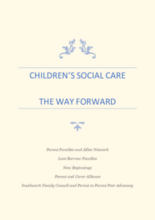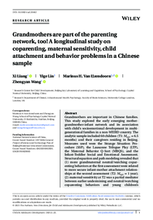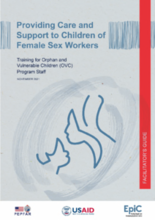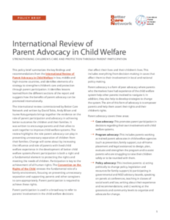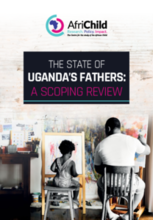Displaying 71 - 80 of 947
“Engaging Fathers – Putting Lessons Into Practice” is a three-part series to share strategies implemented from three of the five State or county agencies: Los Angeles County, California; Hartford, Connecticut; and Prowers County, Colorado.
“Engaging Fathers – Putting Lessons Into Practice” is a three-part series to share strategies implemented from three of the five State or county agencies: Los Angeles county, California; Hartford, Connecticut; and Prowers county, Colorado. Part one focuses on the strategies developed within Hartford, Connecticut.
This report is based on consultations with parents and allies in England carried out by Parent Families and Allies Network; Love Barrow Families; New Beginnings; Parent and Carer Alliance; and Southwark Family Council and Parent to Parent Peer Advocacy. It sets out ideas on making the care system more supportive, humane and inclusive, and ensuring families’ needs are met early, with advocacy as a core feature. It also argues for immediate changes, led by parents and children with lived experience of social care.
This guideline provides evidence-based recommendations on parenting interventions for parents and caregivers of children aged 0–17 years that are designed to reduce child maltreatment and harsh parenting, enhance the parent–child relationship, and
When parents pass away, grandparents often assume the role of caregivers. Being thrust back into parenthood during a time of immense grief, and with a two-generation gap to bridge, introduces a range of challenges grandparents must overcome. This video look at the learning of practitioners from Upendo Village in Kenya in supporting grandparents caring for grandchildren after their own children have passed away from HIV/AIDs.
Grandmothers are important in Chinese families. This study explored the early emerging mother-grandmother-infant network and its association with a child's socioemotional development in multigenerational families in a non-WEIRD country.
This resource aims to improve the quality of care for children of female sex workers (CFSWs). It is a training guide that aims to strengthen the capacity of community workers and volunteers to provide services that meet the special needs of CFSWs and ensure these services are key population-competent, child-friendly and stigma-free.
This policy brief summarizes the key findings and recommendations from the International Review of Parent Advocacy in Child Welfare in low, middle and high-income countries, and identifies elements of a strategy to strengthen children’s care and protection through parent participation.
This two-part launch event reveals research, insights, and a new, 7-point plan for how to achieve equality in care work, launched in this year’s State of the World’s Fathers 2021 report.
This report on the State of Uganda’s Fathers is the first of its kind. The first State of the World’s Fathers Report was published in 2015. This report was monumental in that it highlighted information about fathers and men’s caregiving globally.

